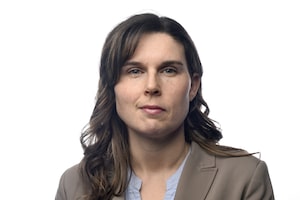The women's world hockey championship opens Saturday in Burlington, Vt., returning to the United States for the first time in a decade. While Canada has taken home gold in the past three Olympic Games, the rival American team has won the last three world championships and is currently the world's top-ranked team. Here is what's new heading into this year's tournament:
A new format for more competitive games
To help minimize the number of lopsided scores, the International Ice Hockey Federation will unveil a new format this year, the same one to be used at the 2014 Sochi Olympics. Canada and the United States will be in the same pool this time, along with Finland and Russia, ranked third and fourth, respectively, in the world. Canada and the United States will meet on the first night, Saturday, and make their statements in that game rather than delivering a big beating on their low-seeded opening opponents. After round-robin play in each group, the four teams from Group A and the top two from Group B will advance, with Group A's top two teams earning a bye to the semi-finals. Pool B will have nations No. 5 through No. 8 – Sweden, Slovakia, Switzerland and Germany, which qualified for this tournament for the first time since 2008. Sweden, long among the world's top four women's hockey countries, is fighting to show it belongs back among the upper echelon.
Mentorship program well under way
Edging closer to the 2014 Olympics in Sochi, Russia, the IIHF is well into its four-year women's hockey-improvement project, initiatives costing $2.1-million. At the heart of the effort is a mentoring program that is helping nations beyond the top Olympic medal favourites to improve their women's national teams. Players and coaches who have won Olympic and world championship medals with Canada, the United States, Sweden and Finland have been paired with the women's national teams in nine other countries for training advice and coaching assistance. The mentors will gather as a group for the first time in Burlington to share progress reports about their visits to these nations and come up with new strategies to help develop the nations.
New players emerging
Some long-standing stars – such as Canada's Jennifer Botterill and intimidating U.S. defender Angela Ruggiero – have retired in the last year, leaving just a few veterans like Canadians Hayley Wickenheiser and Jayna Hefford or Americans Jenny Potter and Julie Chu. Canada's 23-woman squad in Vermont will have just 11 players who helped win Olympic gold in Vancouver, while the American roster includes 15 Olympians.
Making their world-championship debuts on the Canadian blueline will be Courtney Birchard of Toronto, Laura Fortino of Hamilton and Lauriane Rougeau of Pointe-Claire, Que. Both Fortino and Rougeau star at Cornell University. Forwards Bailey Bram of Sainte-Anne, Man., and Vicki Bendus of Wasaga Beach, Ont., both of whom play for Mercyhurst College in Erie, Pa., are also making their worlds debut. On the American side, keep an eye out for University of Minnesota forward Amanda Kessel, making her first appearance in a senior world championship. She is the younger sister of Toronto Maple Leafs forward Phil Kessel.
 Rachel Brady
Rachel Brady